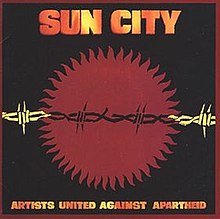
Born in the U.S.A. is the seventh studio album by the American singer-songwriter Bruce Springsteen, released on June 4, 1984, by Columbia Records. Co-produced by Springsteen, Jon Landau, Steven Van Zandt, and Chuck Plotkin, the album was recorded in New York City with the E Street Band over two years between January 1982 and March 1984. Some of the songs originated from the same demo tape that yielded the solo effort Nebraska (1982), while others were written after that album's release. The sessions yielded between 70 and 90 songs; some were released as B-sides, some later saw release on compilation albums, while others remain unreleased.
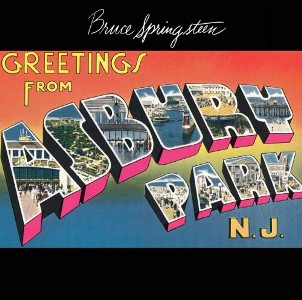
Greetings from Asbury Park, N.J. is the debut studio album by the American singer-songwriter Bruce Springsteen. It was produced from June through October 1972 by Mike Appel and Jim Cretecos at the budget-priced 914 Sound Studios. The album was released January 5, 1973, by Columbia Records to average sales but a positive critical reception.
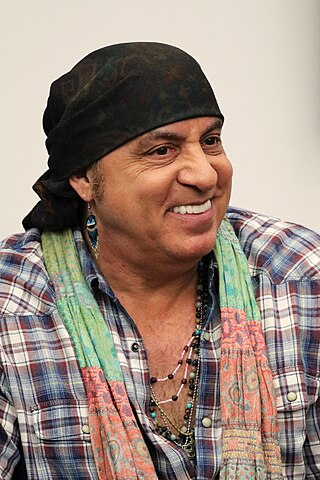
Steven Van Zandt, also known as Little Steven or Miami Steve, is an American musician and actor. He is a member of Bruce Springsteen's E Street Band, in which he plays guitar and mandolin. He has appeared in several television drama series, including as Silvio Dante in The Sopranos (1999–2007) and as Frank Tagliano in Lilyhammer (2012–2014). Van Zandt has his own solo band called Little Steven and the Disciples of Soul, intermittently active since the 1980s.

Tea for the Tillerman is the fourth studio album by singer-songwriter Cat Stevens, released in November 1970.
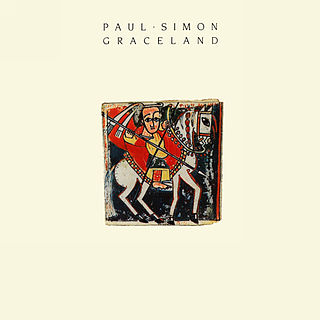
Graceland is the seventh solo studio album by the American singer-songwriter Paul Simon. It was produced by Simon, engineered by Roy Halee and released on August 25, 1986, by Warner Bros. Records. It incorporates genres including pop, rock, a cappella, zydeco, and South African styles such as isicathamiya and mbaqanga.

Let It Bleed is the eighth studio album by the English rock band the Rolling Stones, released on 28 November 1969 by London Records in the United States and on 5 December 1969 by Decca Records in the United Kingdom. Released during the band's 1969 American Tour, it is the follow-up to Beggars Banquet (1968), and like that album is a return to the group's more blues-oriented approach that was prominent in the pre-Aftermath (1966) period of their career. Additional sounds on the album draw influence from gospel, country blues and country rock.

Sun City is a luxury resort and casino, situated in the North West Province of South Africa. It is located between the Elands River and the Pilanesberg, build on the land of Bakubung Village about 140 km northwest of Johannesburg, near the city of Rustenburg. The complex borders the Pilanesberg National Park. It is made up of a number of themed sub-resorts with hotels on each, including the original Sun City Resort, The Cabanas, The Cascades and the Lost City.

Artists United Against Apartheid was a 1985 protest group founded by activist and performer Steven Van Zandt and record producer Arthur Baker to protest against apartheid in South Africa. The group produced the song "Sun City" and the album Sun City that year, which is considered a notable anti-apartheid song.

Billy Idol is the debut studio album by English rock singer Billy Idol, released on 16 July 1982 by Chrysalis Records. After the breakup of the band Generation X and the release of his first solo extended play, Don't Stop (1981), Idol began working on his debut album. Produced by Keith Forsey, Billy Idol is a rock album with strong influences of new wave music.

Men Without Women is the debut solo studio album by American musician Steven Van Zandt, credited as Little Steven and the Disciples of Soul. It was released on October 1, 1982 by EMI America. The title track was inspired by the Ernest Hemingway collection of short stories of the same name.

Voice of America is the second solo studio album by Little Steven & the Disciples of Soul released on May 7, 1984, four weeks before Bruce Springsteen released Born in the U.S.A.

Freedom – No Compromise is the third solo studio album by Little Steven, released in May 1987 by EMI.

Barking at Airplanes is the ninth studio album by American singer-songwriter Kim Carnes, released on May 29, 1985, by EMI America Records.

"Sun City" is a 1985 protest song written by Steven Van Zandt, produced by Van Zandt and Arthur Baker and recorded by Artists United Against Apartheid to convey opposition to the South African policy of apartheid. The song declared that all the artists involved would refuse to perform at Sun City, a resort which was located in the bantustan of Bophuthatswana, one of a number of internationally unrecognized states created by the South African government to forcibly relocate its black population.

From South Africa to South Carolina is a studio album by the American vocalist Gil Scott-Heron and the keyboardist Brian Jackson. It was released in November 1975 by Arista Records. Scott-Heron performed "Johannesburg" and "A Lovely Day" on Saturday Night Live in December 1975. The album was reissued in the late 1990s via Scott-Heron's Rumal-Gia label, distributed by TVT Records.

Dedication is a 1981 album by American singer Gary U.S. Bonds.

The apartheid regime in South Africa began in 1948 and lasted until 1994. It involved a system of institutionalized racial segregation and white supremacy, and placed all political power in the hands of a white minority. Opposition to apartheid manifested in a variety of ways, including boycotts, non-violent protests, and armed resistance. Music played a large role in the movement against apartheid within South Africa, as well as in international opposition to apartheid. The impacts of songs opposing apartheid included raising awareness, generating support for the movement against apartheid, building unity within this movement, and "presenting an alternative vision of culture in a future democratic South Africa."

Soulfire is the sixth solo studio album by Little Steven, released on May 19, 2017. It marks his first studio album since 1999's Born Again Savage. The album consists of Van Zandt's versions of songs that he either wrote or co-wrote for other artists and describes it as "me covering me!" In June 2017, Rolling Stone ranked Soulfire number 28 on their list of the "50 Best Albums of 2017 So Far."
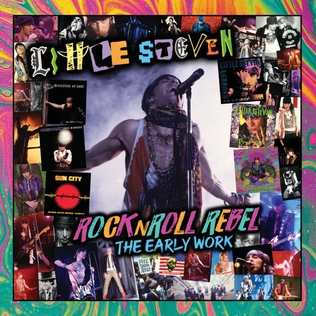
Rock N Roll Rebel: The Early Work is a box set collection by Little Steven, released on December 6, 2019. The set contains Van Zandt's first five studio albums remastered from the original master tapes for the first time ever. The box set also features 51 bonus tracks, including demos, studio outtakes, b-sides, remixes, and live tracks, many of which are previously unreleased. The set also includes the 1985 album Sun City by Van Zandt's protest supergroup Artists United Against Apartheid.
"Johannesburg" is a song by Gil Scott-Heron and Brian Jackson, with music provided by the Midnight Band. It is the first track on Scott-Heron and Jackson's collaborative album From South Africa to South Carolina, released in November 1975 through Arista Records. The lyrics to "Johannesburg" discussed opposition to apartheid in South Africa, and likened apartheid to the disenfranchisement of African Americans in the United States. The song became a popular hit, reaching No. 29 on the Billboard R&B chart in 1975. According to Nelson George, "Johannesburg" played a role in spreading the cultural awareness of apartheid.
